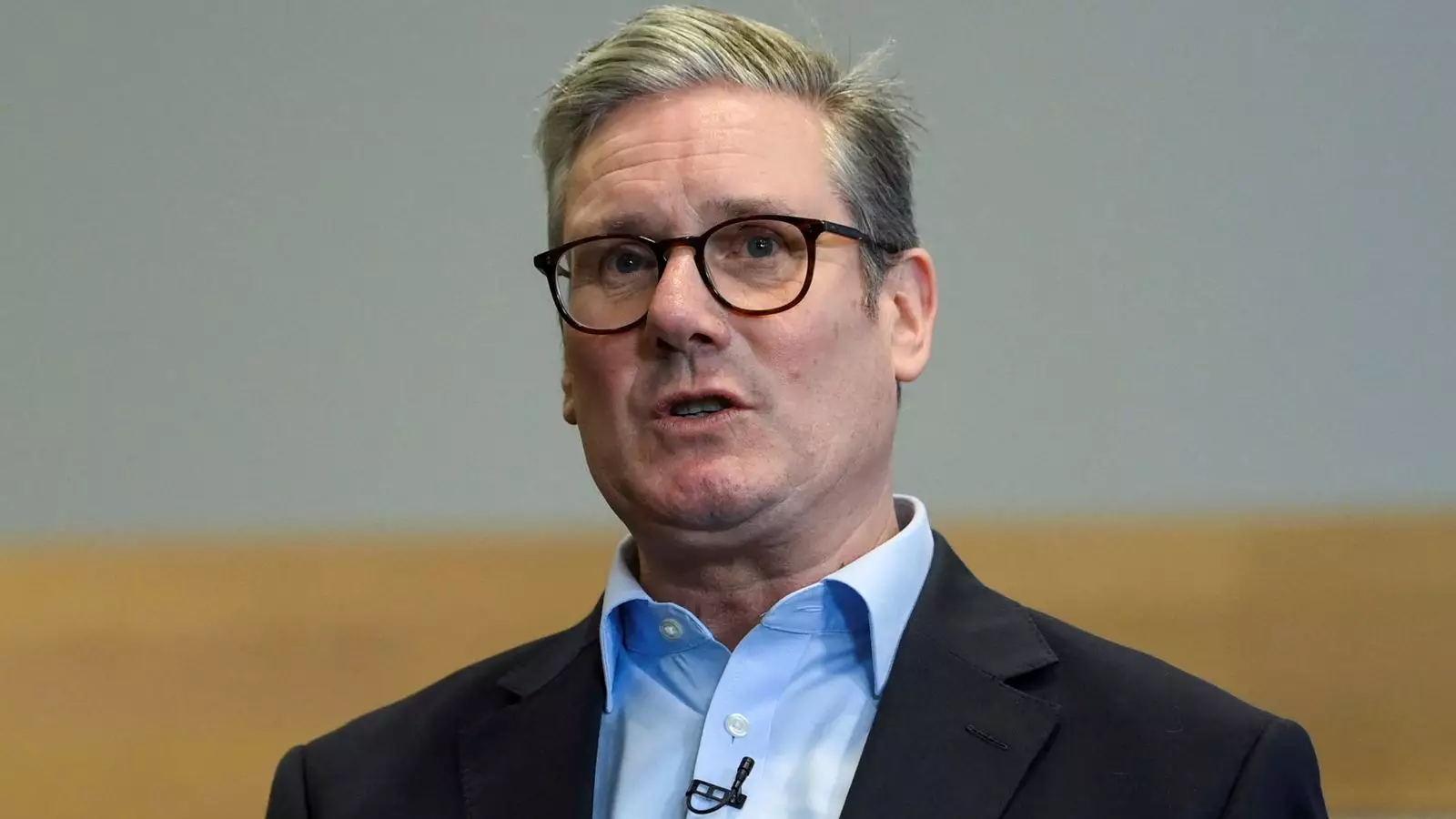As the Labour government prepares to unveil its inaugural budget, expectations are set against a backdrop of economic uncertainty and pressing public needs. Prime Minister Sir Keir Starmer and Chancellor Rachel Reeves are gearing up for significant announcements, emphasizing a commitment to balancing the harsh realities of today’s financial landscape with promises of a better future. This budget symbolizes a departure from former fiscal policies, aiming to confront the challenges that the UK has faced over the past fourteen years.
Confronting Economic Challenges: A Fiscal Wake-Up Call
Sir Keir Starmer’s speech aims to instill a sense of pragmatism, urging citizens to embrace the cold, hard facts of the current economic situation. He warns of “unprecedented” circumstances, acknowledging the long-term challenges that have been neglected for years. By addressing issues like productivity and substandard investment, the Labour party seeks to assert its proactive role in seeking solutions rather than relying on rhetoric. This reveals a shift in narrative: from one of complacency to a need for decisive action.
The proposed rise in employer national insurance, while controversial, reflects a strategy centered on generating necessary revenue. Similarly, the decision to eliminate tax exemptions for private schools stands to signal a move toward broader financial equity in education. However, this approach invites scrutiny. Critics may see these adjustments as indicative of a broader trend towards a government that reassesses prior commitments in light of current economic exigencies. There is a careful balancing act at play between adhering to manifesto pledges and adapting to new realities.
One of the most contentious discussions emerging from the government’s fiscal discussions pertains to the definition of “working people.” Sir Keir has indicated that individuals who derive income from assets like property might not fit this description. The implications of this definition raise questions about inclusivity and fairness in tax policy. While Labour’s manifesto pledged not to impose tax increases on working individuals, the freezing of income tax thresholds has led critics to cry hypocrisy. Navigating who qualifies as working-class will be pivotal for Labour, as failure to address these nuances could alienate key voter demographics.
Despite these tensions, the Labour government’s budget does promise substantive investments in various sectors. Conservative estimates of a £40 billion “black hole” necessitate immediate action. Noteworthy allocations like £1.4 billion for rebuilding schools and £10 billion for the NHS aim to directly address public service inadequacies. These commitments signal an understanding of the urgent need to rejuvenate these essential services, which have suffered under prolonged strain.
Investment in healthcare, particularly to combat long NHS waiting lists, underscores a recognition of the immediate needs of the population. However, it is essential to consider whether such investments can be sustained without increasing the financial burden on the average taxpayer. The careful navigation of spending versus revenue generation will likely dominate discussions following the budget announcement.
As Starmer prepares to address the nation, he is positioned at a crossroad. There’s an imperative not just to state intentions but to demonstrate accountability to the electorate. The shifting landscape of economic realities necessitates not only tough decisions but also transparent communication with citizens regarding the challenges ahead.
The Labour government faces the tall order of building both immediate relief for pressing public service issues and long-term economic growth. Should they successfully execute their budgetary strategy while maintaining solidarity with working citizens, Labour may not only secure the trust of the electorate but also galvanize a movement toward comprehensive economic restoration. Ultimately, the journey ahead requires balancing idealism with the sometimes unyielding demands of fiscal reality—an endeavor that will test both policy and political acumen in the coming months.



Leave a Reply